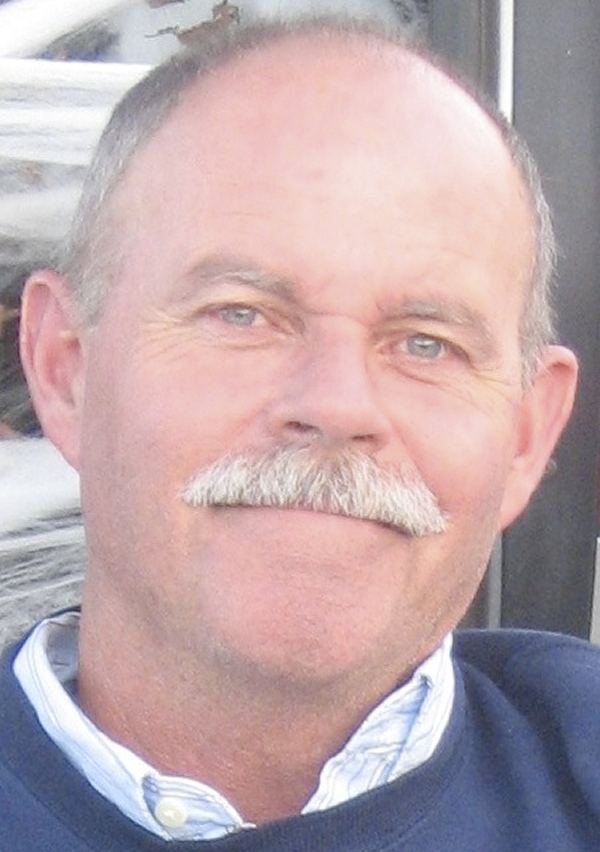My Turn: A trip to the barber shop
Published 12:20 am Monday, August 3, 2015

- Bruce LaRue
By Bruce La Rue
Some of my earliest and most enduring boyhood memories are of barbershops. Whether in Mooresville or Scotland Neck, those early man-caves were sanctuaries, outposts of man-stuff. As a young chap I felt privileged to be allowed to be privy to conversations about grown-up manly subjects including, but not limited to, hunting, fishing and politics.
Unlike the gossip-roosts more commonly known as beauty parlors, the barbershop was a clearinghouse for useful information. Teenaged boys might be grilled about the local high school football team’s upcoming season. Middle-aged men would chat about cars, trucks, boats, trips to the coast, as well as reminisce about their glory days on the field or in the gym. Farmers were happy to share their insights concerning signs and planting times, weather, and harvests. The older gentlemen had a lot to say about ailments, conditions, and procedures, their own as well as those of others not in attendance.
Like many aspects of daily life in the ’60s, barbershops were segregated as rigidly as any other institution of the day. As laws were enacted and hearts and minds were changed, racial integration became the social order of the day. Schools, neighborhoods and workplaces gradually, inexorably, often painfully, trudged ahead toward a more perfect union. We became a more racially integrated society, and yet pockets of segregation persist, the products of tradition, cultural heritage or simply a preference of association.
The road to racial harmony is not without its potholes, speed bumps and the occasional barricade. Sections of the road have been paved with good intentions, with predictable results. The highway is perpetually under repair, but some of the detours lead to dead ends. While some have found a way around the obstacles, and some have given up and turned around, most of us just seem to be stuck in traffic. Hope and optimism have been supplanted by frustration, anger and resentment. Though the achievements have been numerous, the setbacks have been devastating. It’s as though we receive one point for a victory but lose 10 points for each loss.
As with any social upheaval or revolution, there will be leaders and laggers. Music was probably the most significant leader in race relations, followed by sports. One lagger can be found in the personal hair-care industry.
The barber shop remains one of the last bastions of racial segregation in American culture. Blacks go to black barbershops; whites go to white barbershops. No one seems particularly distressed by this phenomenon. There is no outrage, no demonstrations on the steps of barber colleges calling for an end to this social injustice. Still, one cannot help but wonder what would happen if …
Recently I stopped by my regular barbershop, only to find it closed, with a sign informing me that it would remain closed for several more days. My other barber was some 20 miles away, and I was tired and in no mood for that trip. I noticed a sign for a new barbershop across the street and, desperate for a haircut right then, I decided to give it a try.
Had I known that it was a black barbershop I never would have considered going inside; comfort zone and all that. No, this was not No. 17 on my bucket list. But as I opened the door I saw the barber, I saw the customer, and they both saw me. I suppose I could have said, “Oops, sorry,” and beat an embarrassed retreat, but I did not. I don’t know why, but I walked in and sat down to await my turn, certain that if the barber had a reason not to cut my hair, he would have let me know. Instead, he greeted me in typical barber fashion, then resumed his conversation with the customer in the barber chair. Soon a young black man entered, acknowledged my presence with a nod and a “how ya doin’?” and seated himself, seemingly unfazed by the incongruity of an old white guy in a black barber shop. Then, another young black man came in and sat down, also offering a friendly greeting, seemingly oblivious of the fact that the universe was in total disarray. The chatter was light, casual and sports-oriented. Though I was disinclined to inject myself into the conversation, someone would occasionally make eye contact with me while speaking, which I interpreted as a sign of tacit inclusion, considerably easing my discomfort.
When it came my turn to occupy the seat of honor, the barber asked what sort of haircut I was looking for. I replied that I would like a fade, slanting from the left side of my head down to the right. The looks on the faces of the two waiting customers hinted that they were not sure how to take me (like that never happens), but the barber simply chuckled and everything got all right.
We talked local high school sports, particularly baseball, very much as I might have done with any of my white barbers. When he was finished, he held a mirror in front of me to show how I looked. My haircut was fine, but there was something else in the mirror, something difficult to put into words. As I paid, he asked me my name, shook my hand, and enthusiastically thanked me for my business. I think that we both had a lot more that we wanted to say, but left it for later, I suppose.
It was not the lunch counter at Woolworth’s, nor was it a Rosa Parks moment. Maybe it was just a haircut. But maybe, just maybe, five men in a barbershop on a Thursday afternoon helped patch a few potholes.
Bruce La Rue lives in Mt. Ulla.

